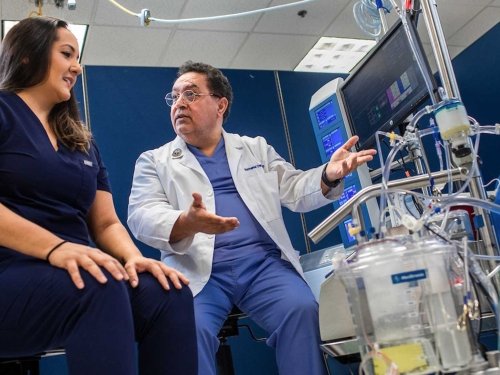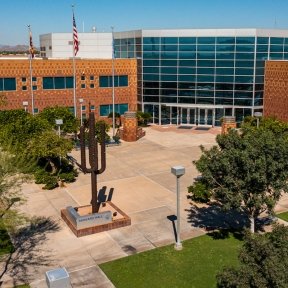Cardiovascular Science
The Master of Science in Cardiovascular Science (M.S.) degree prepares you to flourish in the ever-changing field of cardiopulmonary surgery.


AZ - Glendale
- In-Person
College Master, Cardiovascular Science
Duration21 Months (Continuous) Including 48-Weeks of Clinical Rotations
Class Size Approximation44
The Midwestern Advantage
Midwestern University's investment in education, faculty, research, facilities, and clinical training translates into our students being "Day One Ready.”
The College of Health Sciences' Cardiovascular Science Program prepares you to flourish in the ever-changing field of cardiopulmonary surgery.
Our curriculum is a full-time professional program of didactic and laboratory simulation education that exposes you to new surgical techniques and technologies; first through clinical observation and then through rotations at affiliated hospitals across the country. We help you master the skills to build a career as a perfusionist.
View program details in our Academic Catalog*
*Subject to change
Medical cardiovascular perfusionists are highly specialized professionals responsible for operating heart-lung equipment during surgical procedures; expertly managing mechanical and electronic devices to maintain blood oxygenation and circulation while surgeons perform medical interventions.
Their education encompasses anatomy, physiology, biology, chemistry, physics, and electronics, enabling them to assemble essential equipment for life-saving procedures while strong teamwork and communication skills are integral to their role.
As a practicing perfusionist, you may be self-employed or employed by private groups or hospitals where you are involved in patient treatment, quality assurance, research, and design.
Career opportunities include:
- Heart-related surgeries
- Blood therapies
- Artificial hearts
- Mechanical circulatory assist
- Cancer therapies
- Heart, lung, heart-lung transplants
- Blood conservation
- ECMO
- Teaching & Research
If you want to combine your interests in healthcare and technology; provide critical support for major medical procedures; offer life supporting services to seriously ill patients; be a contributing member of a medical team; and be part of a select group of healthcare professionals, a career in cardiovascular science/perfusion may be just right for you.
At Midwestern University, we prioritize research to advance knowledge and offer students enhanced learning opportunities, fostering close collaboration with faculty researchers and peers on innovative projects.
Academic Course Catalog
Explore comprehensive details about our academic programs (subject to change).
Career Placement & Salaries
*Median Salary (2024) Salary.com
Campus Options


Glendale
Located just 15 minutes from downtown Phoenix. Students can study and live on our sprawling 143-acre campus and practice at our University-owned clinics located just across the street.
